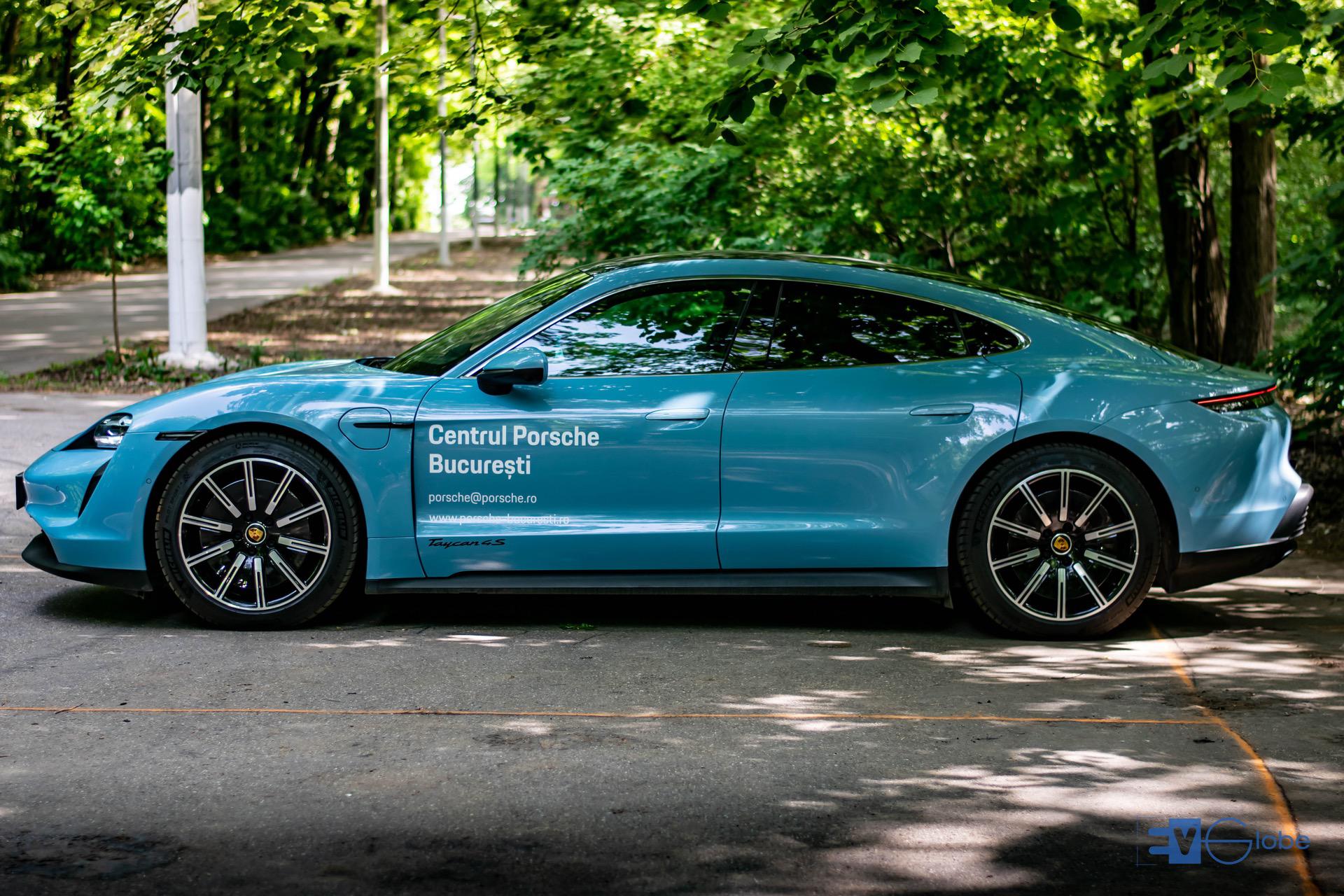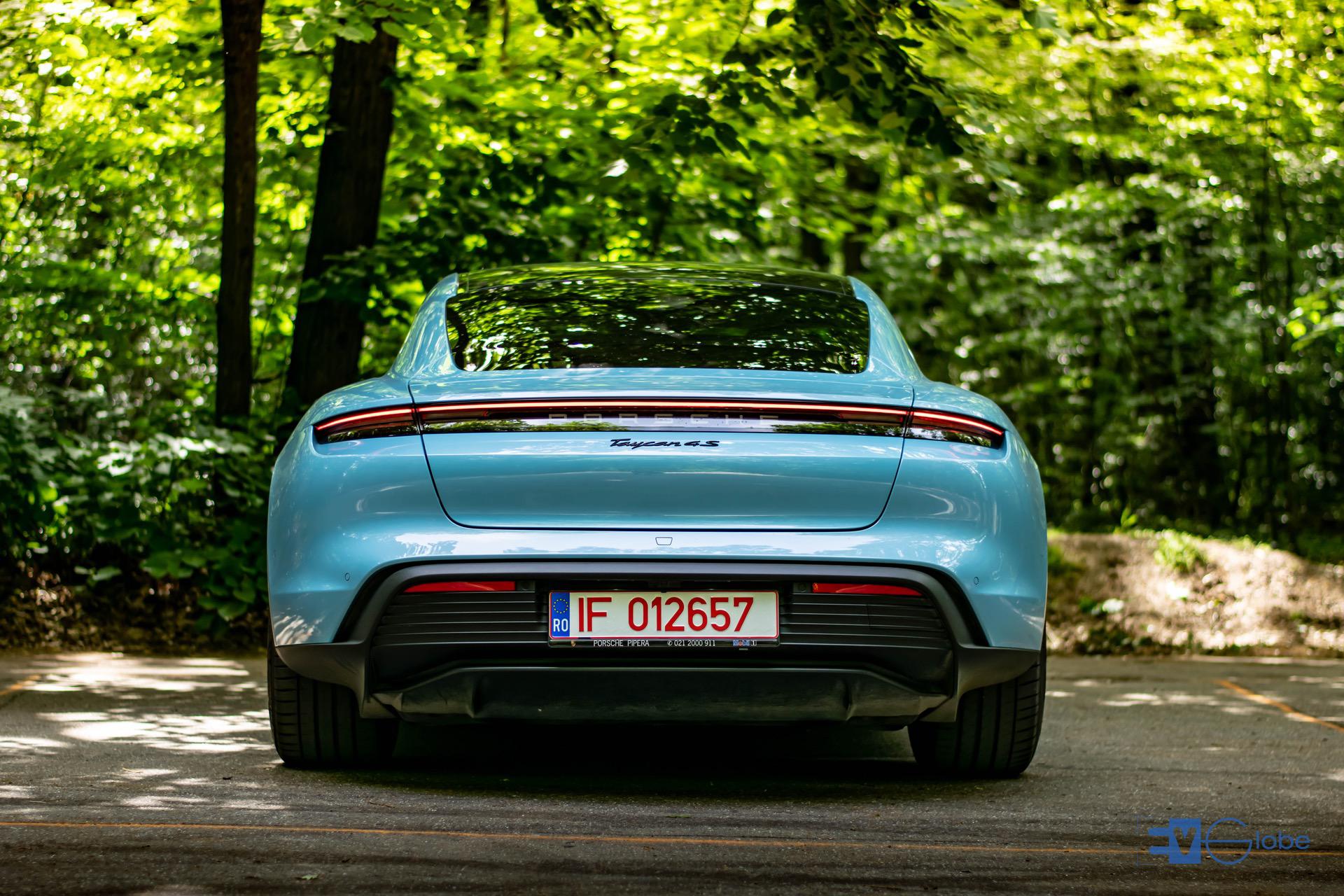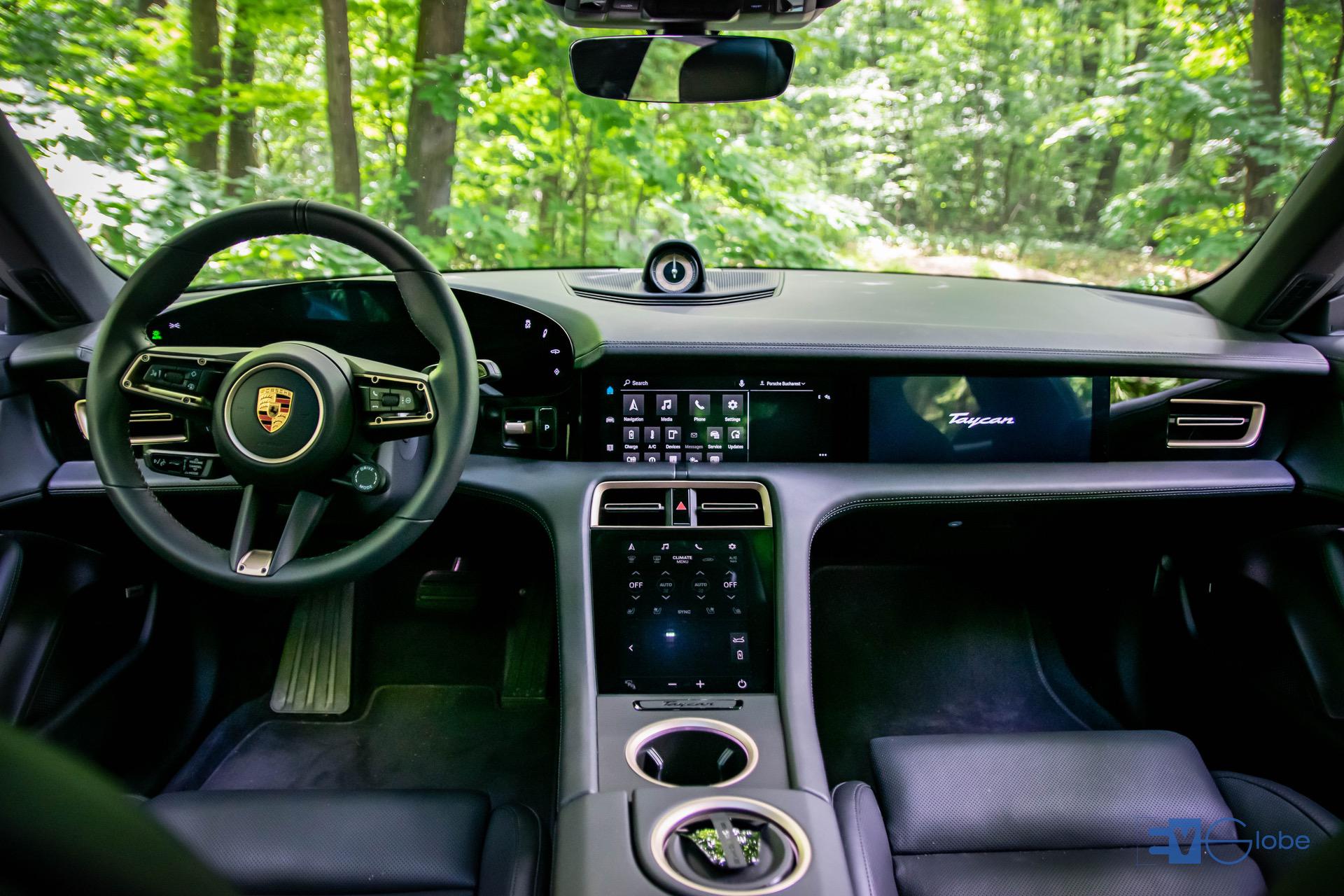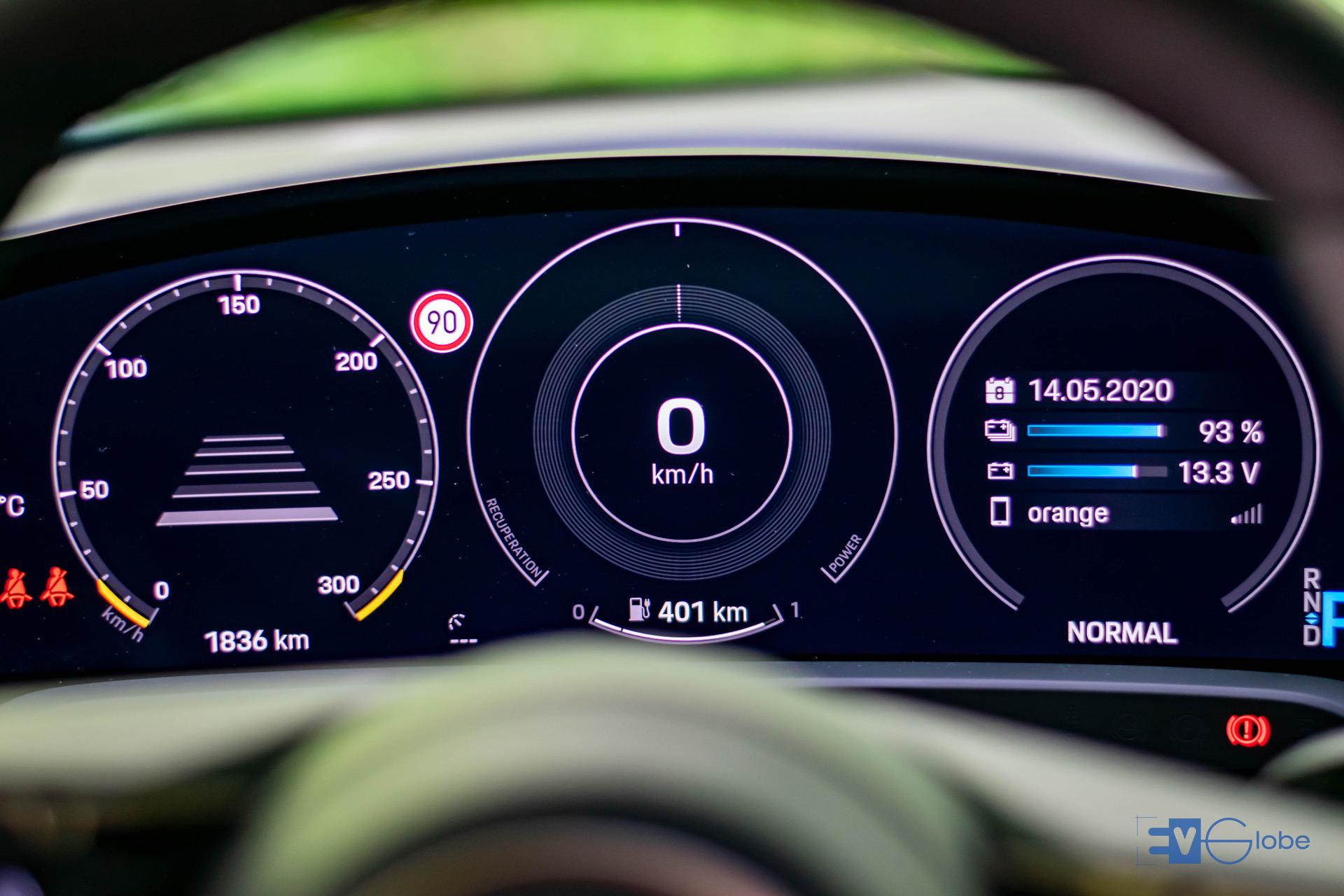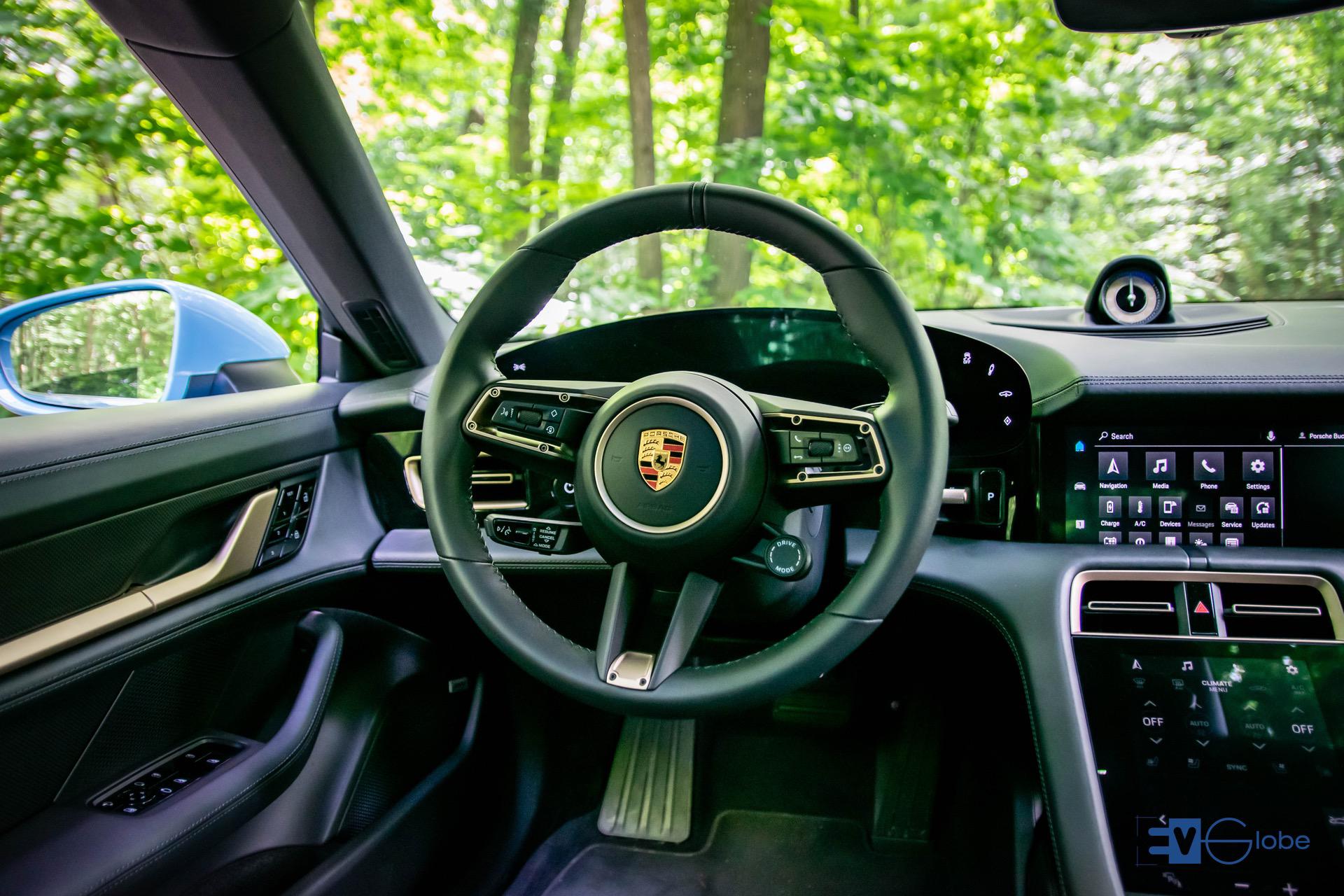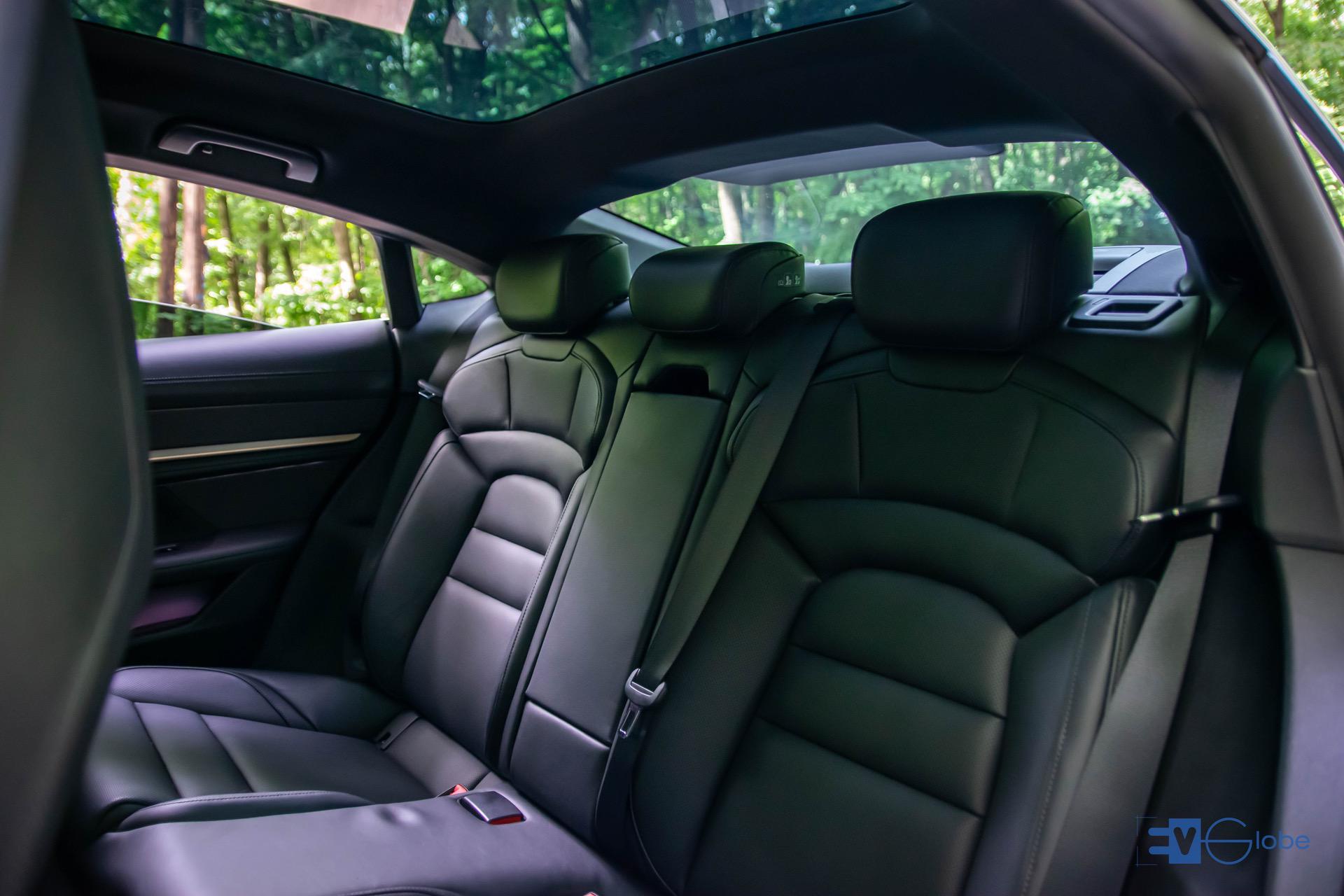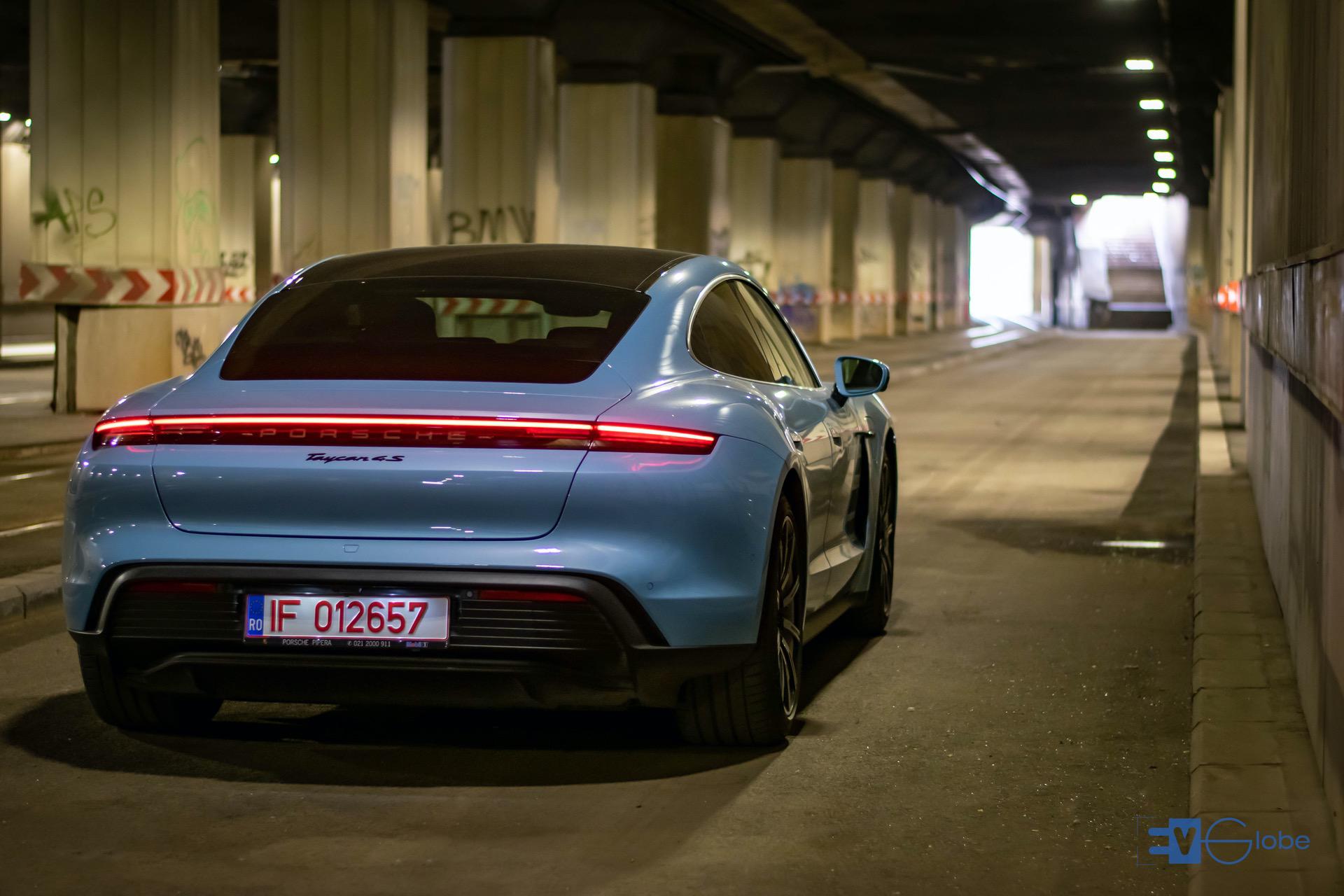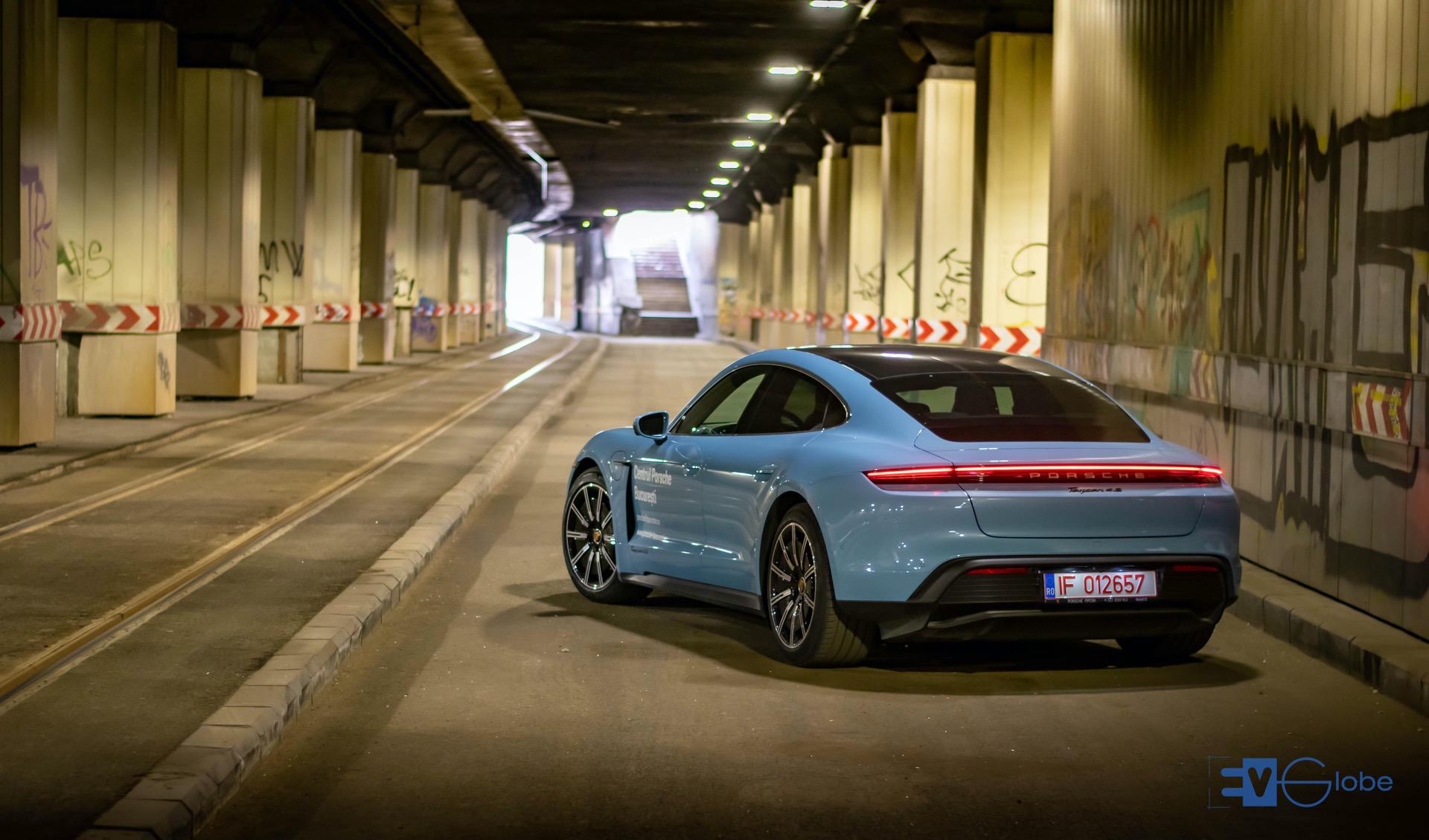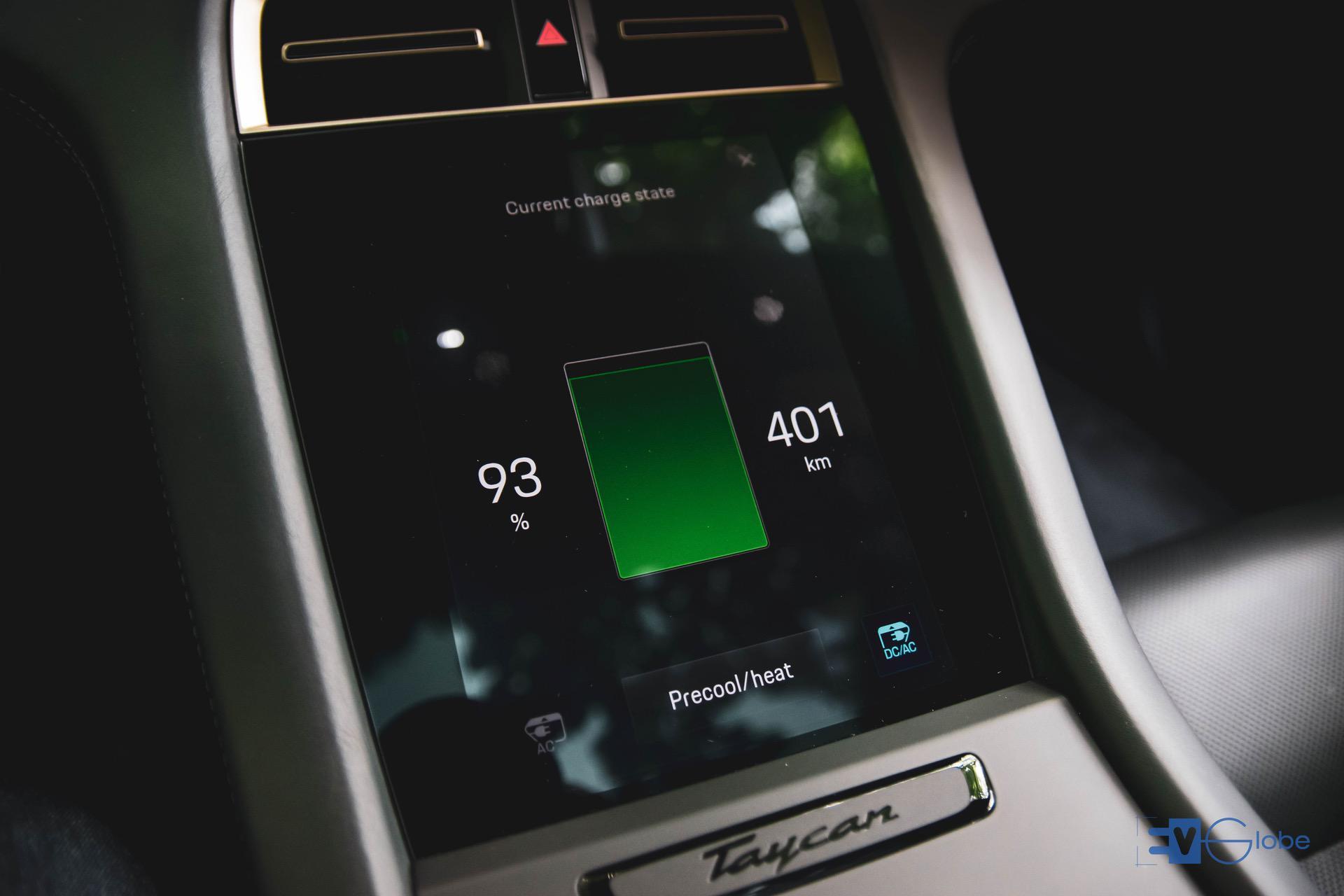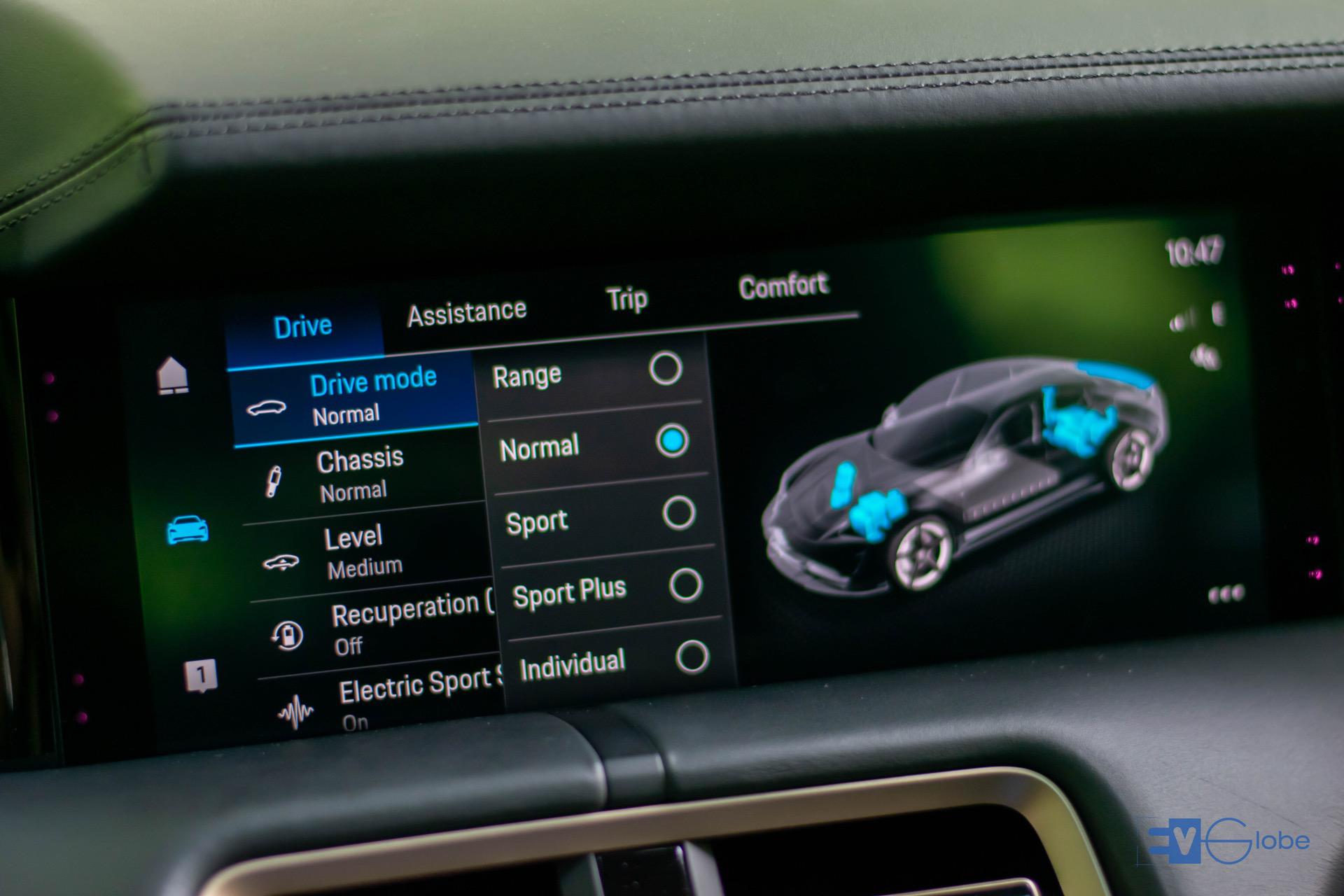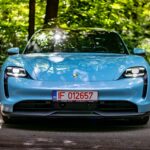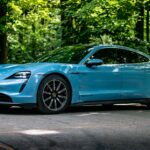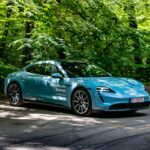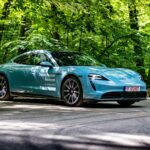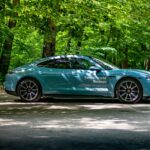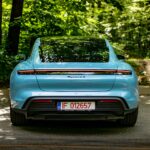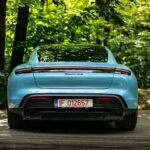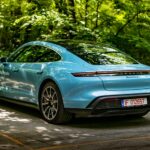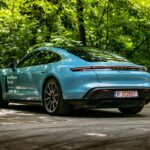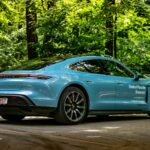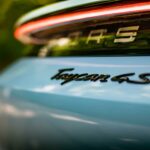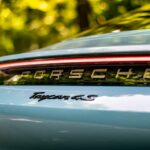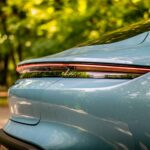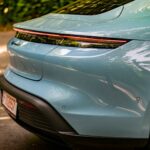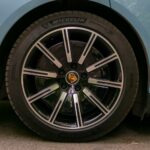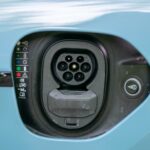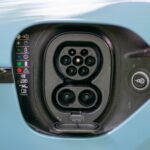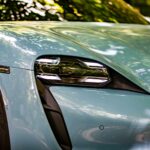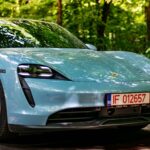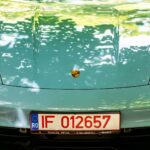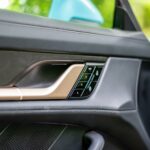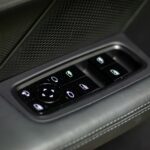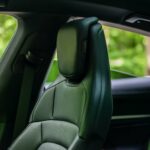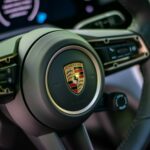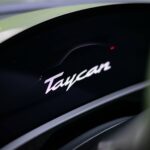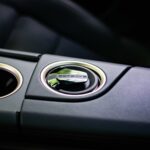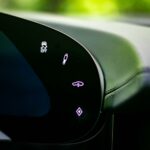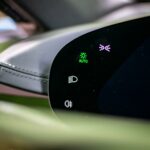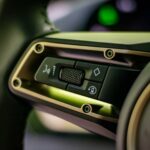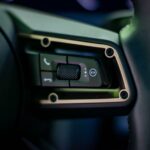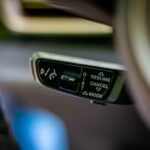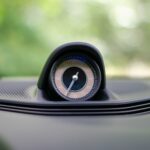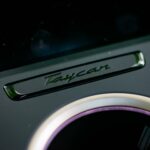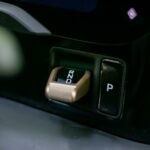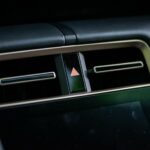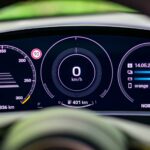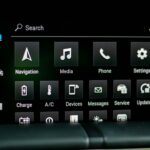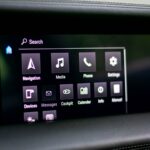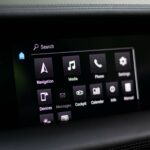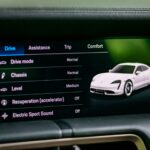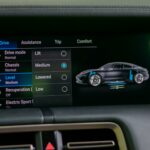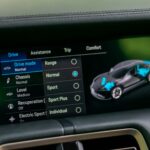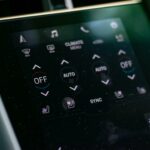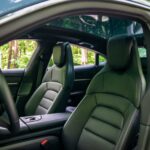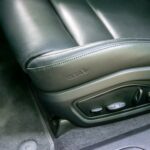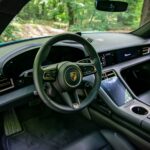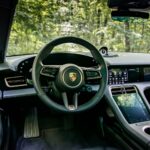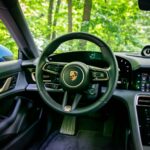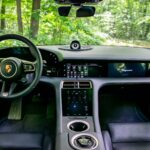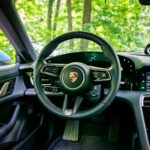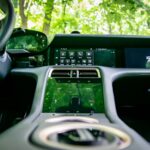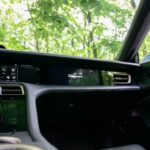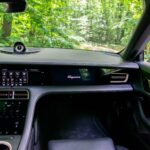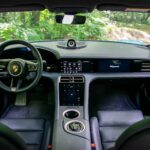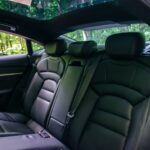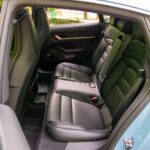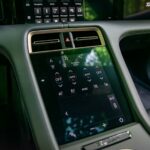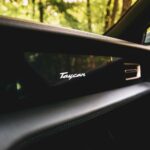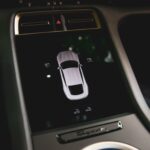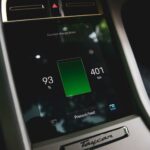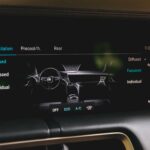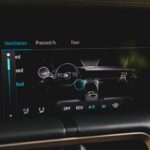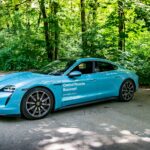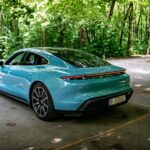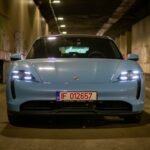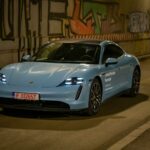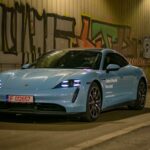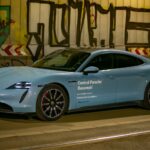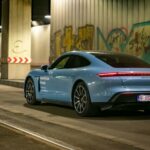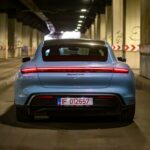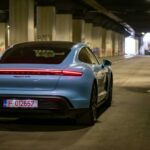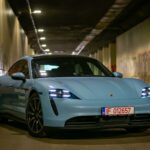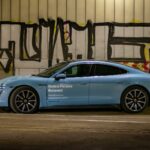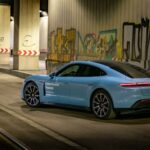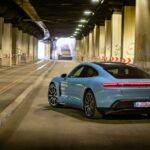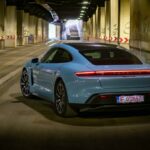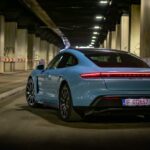It’s hard to describe the journalists’ anticipation and anxiety when Porsche unveiled the Mission E concept. It may seem odd to some, but it makes once you think about it.
Those unfazed by the new Porsche Taycan, which is basically the production guise of the Mission E, will be ones who know that this is not the first ever electric car to bear the Porsche name on it. That honor goes back over 100 years ago when the Lohner-Porsche “machine” was a thing.
This was initially an electric car, using hub-mounted electric motors, something you don’t see today unless you live on Mars, where the electric Rover does his thing. Interesting tidbit: NASA used that same tech on the only object that can be defined as a “car”, roaming outside the realms of our planet.
That car launched in 1900 was created by Ferdinand Porsche, the man who started the entire Porsche history. It was not really a usable car as it was big, extremely heavy and had only around 7 horsepower to get around. It was so heavy, the tires used to blow out so often, it made driving it or using it an amusing exercise.
That was also one of the first projects Ferdinand Porsche worked on. So you could’ve probably expected him to work on his creation a bit more, refine it, and keep making incrementally better models with each new generation, right? In the end, that is the way of doing things today in Stuttgart.
The Electric Revolution
Well, not really. Over the years, internal combustion engines took over simply because they were easier to make and run, especially once the electric starter was developed and implemented on a large scale. Therefore, every company adapted and went along with the flow. Fast forward to the 21st century and things are starting to change, once again.
The ELECTRIC REVOLUTION, as some are calling it, seems to be here and vows to change the way we live and move. Everyone is banking big on electric cars now but it comes with a couple of challenges, especially if your cars are known to be the benchmark in the industry for handling and feeling.
The German brand is viewed by many as the epitome in those two specific areas and, once you’ve driven a 911, you understand why. The balance, the way the car molds itself to your will and the way it simply makes you feel while behind the wheel are pretty much self-explanatory.
However, as we’ve gotten used to, a lot of those feelings come from the flat-six engines mounted behind or on top of the rear axle. Furthermore, most cars Porsche makes are also light on their feet and those two defining characteristics make the prospect of an electric Porsche being just as good seem like a never-achievable illusion.
But is that really true? I set out to find out.
Meet the Taycan
The Porsche Taycan was one of the most anticipated cars to drop in 2020. From the unveiling of the concept, I was incredibly curious to see how this car handles. The reason why it made me so curious is rather easy to understand: I know how Porsches handle and wanted to see how they incorporated the instant torque of an EV into their creation.
Therefore, when the call from Porsche came, I stepped up to the plate.
Sleek And Sporty Design
One of the things I like the most about the Taycan is the design. This car looks like a Porsche from the moment you lay your eyes on. Somehow, it also tells you there’s something special about it. The front-end has those typical Porsche lines, that low-slung nose and even the trademark four LEDs in the headlights, as you see on most cars made by the German manufacturer. The air intakes on the lower part of the bumper are also functional and inspire a feeling of “good old fashion Porsches”.
Looking round the sides you’ll notice the four-door coupe style. This was called by many a “mini Panamera” and it does carry a resemblance. However, the Taycan is considerably smaller and rides on a different platform, one developed specifically electric drivetrains.
Around the back, the wide hips a la 911 are noticeable instantly as well as the sculpted rear end. There’s a beautiful LED strip going from side to side and the Porsche name is engraved in 3D letters hidden underneath a glass cover. That element reminds me of the Gallery found inside Rolls-Royce Phantom VIII.
It is also at the back where you notice that the plastic used for the rear bumper could’ve been of better quality. It feels and looks cheap and it’s definitely not worth to be on such an expensive car. The same material was used on the side sills and the front bumper, as I noticed upon a more careful examination of the car.
And yet, when you get in and see those wide hips in the rearview mirror, you don’t really care.
A High-Tech Cabin
As for the interior, everything feels like is coming from the next century. All physical buttons have been replaced by high resolution screens. The center console display allows you to adjust the AC while also displaying interesting data about the car: such as the battery state of charge.
It also incorporates buttons to open the frunk and the trunk. There are also four shortcuts at the top of the screen that allow you to enter specific menus in the car’s infotainment system.
The main display is well integrated into the dash, but it doesn’t come with the haptic feedback as is the case with the center console HVAC controls. As a matter of fact, they felt a bit odd when used because whenever you touch a certain button on that center console screen, you expect it to react a certain way.
You expect it to react to your touch, just like a phone’s screen does, but that’s not the case. You actually have to press on it, to get it to respond, just like you would on a physical button. And I can’t even begin to tell you the amount of fingerprints left behind.
On the Taycan you can also get an optional second screen fitted right in front of the passenger. It looks exactly the same as the main infotainment screen and offers the same info for the passenger. What I like the most about both of these is that they are integrated perfectly into the dash and they are not too big.
Without a doubt, the main star of the show is the instrument cluster. This too is a screen but a curved one that looks very analogue. The information is displayed inside three clusters which can be customized and everything feels like in any other Porsche.
Even the font is the same.
On the sides, you’ll find pictures of various functions, hiding touch-sensitive buttons. The old lights cluster, for example, is replaced by four touch-sensitive icons on the left side of this screen.
As for the steering wheel, what can I say other than: perfect. It’s the perfect size, perfect girth and feels great to the touch.
Inside the Taycan you’ll also notice the typical Porsche premium finishes and materials. The seats are comfortable and access is easy. The frameless doors create a spectacular effect when open while room in the back is a bit cramped. You can’t really sit a 6-ft tall driver and similarly tall passenger one behind another.
The panoramic roof offers a bit more headroom but it’s still not enough. If you’re planning on carrying smaller individuals, it might make due.
The best part of the interior though is the driving position. Even though the Taycan has its batteries in the floor, you’re still sitting very low and have a very commanding position inside this car. Visibility is good all around, including in the rearview mirror, even though the small rear window feels like it’s limiting your vision. It’s not a big deal as you get surround view cameras.
That driving position once again reminded me of the 911 and once you look in the mirror and see the wide hips right behind you, that feeling is even more present.
And then you set off.
The Driving Experience
What surprised me the most was how well knit together the call feels. If you’ve ever driven an electric car you probably noticed that most of them feel brittle, like they’re about to break any moment now. That’s because they are incredibly silent and you can hear everything: from little stones flying off from the ridges inside the tires to the wind and the suspension working every time you hit a pothole.
It’s not the case inside the Taycan, as this EV feels really well put together and sturdy.
Unlike other cars, the Taycan also comes with an electric sport sound, if you want. It’s a sound pumped through the speakers to emulate the sensation of speed. I really liked it.
That’s one of the big issues electric cars have from an enthusiast’s point of view: the lack of an aural soundtrack. Not with the Taycan, which has a nice hum to it if you activate that option, which changes the faster you go, making you feel like you’re in a spaceship.
Powering you along are two electric motors, one for the front axle and one for the back. For the Taycan 4S you can choose two different batteries: Performance Battery and Performance+ one. Depending on the one you go for, you get two different autonomy levels and two different maximum power bursts.
As standard, the Taycan 4S’ engines will deliver 482 HP and 640 Nm of torque. However, the cars can deliver up to 562 HP and 522 HP depending on the battery choice, in Overboost mode. Basically, if you go for the bigger, Performance+ battery, you also get an extra 40 HP on Overboost.
As for the energy each battery can store, the base version will offer 71 kWh while the optional Performance+ version will offer almost 84 kWh. Both those figures are net, the actual usable capacities of the batteries, excluding the buffer.
Nevertheless, the 0-62 mph sprint is the same in both cars, rated at 4 seconds flat.
Is that too slow? It never felt like it during my time with the car. The instant torque of the electric motors, coupled with the excellent chassis and extra tech made it feel like an absolute blast. The two electric motors are split between the axles. Up front you get the same electric motor as on the Taycan Turbo so only the rear motor is different, with less power.
The 2-speed gearbox is also the same so you get the same crazy acceleration in first gear and better efficiency in second gear. According to Porsche, the first gear is only used in sport mode and at lower speeds to amplify the performance, while the second one will be used more often to make the Taycan more efficient.
Does it work? I think it really does.
The Electric Driving Range
I saw an average energy consumption of 21 kWh per 100 kilometers which means the car would add up to a range of about 400 km (250 miles) considering I had the Performance+ battery (84 kWh net capacity).
Outside the city limits, at an average speed of 75 km/h (46.5 mph), the energy consumption dropped to 17.7 kWh, adding up to a range of about 475 km (295 miles). Going up on the highway, driving at the European speed limit of 130 km/h (81 mph), energy consumption rose to 24 kWh/100 km covered. That adds up to a range of about 350 km (217 miles).
What does that tell us? Well, depending on how you’re going to exploit this car, the range should be between 200 to 300 miles. It also shows that the energy consumption from an average speed of 75 km/h (46.5 mph) to 130 km/h (81 mph) rose by about 30 percent.
That’s considerably less than I saw in other EVs, where that percentage would be over 50 percent. Therefore, that 2-speed gearbox does help out.
I think better results could be achieved though, as I performed all my tests in the Normal driving mode, with the AC on. Using the “Range” mode would’ve definitely squeezed a bit more, not to mention turning off the AC, which had the biggest impact on the range estimates the car showed.
Fastest Charging Capability In An Electric Car
Even if that range doesn’t seem like is enough, Porsche fit the Taycan with the fastest charging available on any EV today: up to 270 kW. That is, provided you can get to a charger that can deliver that sort of power. The car’s 800V electrical system allows for not only that kind of charging power to be used, but it also allowed Porsche to use extra thin cables around the car’s body, shaving some 40 kilos of weight in the process.
And when it comes to sports cars, weight is an important factor. As for the charging times, it will depend on the type of charger you’re using. Use a 270 kW one and you can go from 5% to 80% in 22 minutes.
Good luck finding one though, for they are rare right now.
Using a 11 kW AC charger should replenish the battery in about 8 hours.
The Porsche Taycan is not light, as it tips the scales at 2.1 tons but, for an EV of this size is not heavy either. Sure, compared to a 911 it seems like a huge difference, but it handles it all with incredible grace and this is where Porsche’s expertise comes to light. The Taycan can hide its weight incredibly well and it uses a lot of technology to do so.
Brilliant Chassis Work
As standard, the car comes with air suspension but on top of that you can add a host of performance-enhancing products to help out.
The Porsche Dynamic Chassis Control does its job brilliantly, this being basically an active stabilizer bar system that keeps things nice and even. Especially when you’re carrying way too much speed into a corner.
Then there’s the Porsche Torque Vectoring Plus system that directs torque to each wheel individually, depending on where the car needs it most. Add in the integral steering system and you can get a limited slip differential at the back as well, for even more performance. To keep a long list of optional features short: we had it all on our test car and the end result was mind-blowing.
It felt as if your brain was directly connected to the car’s chassis. Porsche infused so much driving enhancing technology into the Taycan that it needs a dedicated computer just to handle all the data read by the sensors on board. And that computer must run on “black magic”, or something, because it was doing incredible things for a car that was over 2.2 tons with be behind the wheel.
The body control was flawless, traction seemed limitless while the speed was eye-watering. The acceleration felt brutal but not to the point that you would get headaches from it. And if I ever used the term “like it’s on rail” ever before when reviewing a car, I must now apologize as the Taycan truly showed me the meaning of those words over the last few days.
The steering is precise and I dare say the best EPS I ever tested. It offers feedback and it’s not unnecessarily heavy. The brakes are also perfect, being covered in a Tungsten carbide surface to protect them from rust and to improve the friction between the pads and the rotors.
But as an EV, the Taycan won’t be using the pads too often, most braking being regenerative.
Even the aural feedback you get from the speakers contributes to the overall feeling of the car, letting you know how fast you’re going. I know it sounds peculiar to say, but you need that in a sportscar, to avoid having to look at the speedometer and take your eyes from the road.
Kudos to Porsche for implementing it!
Is The Taycan One Of The Best Electric Cars On The Market?
Everything feels just like it should in a Porsche and this car has recently risen to the top of my favorites’ list because of that, beating the Panamera in the process. And you can feel a bit of the bigger brother in the Taycan as well. After all, that’s how Porsche learned to make big, heavy cars drive incredibly well over the years.
Therefore, I feel obligated to say this with the utmost responsibility: the Porsche Taycan is the best sedan I ever drove. What is most impressive about this car is that, even though it’s an EV, it feels like a true Porsche.
That, for me, was the biggest surprise walking away from this car. It turns out Porsche can set benchmarks using electric motors as well and that means sportscars can now go electric.
Ipso facto, this is great news for all of us, as it’s pretty clear the future is electric.


